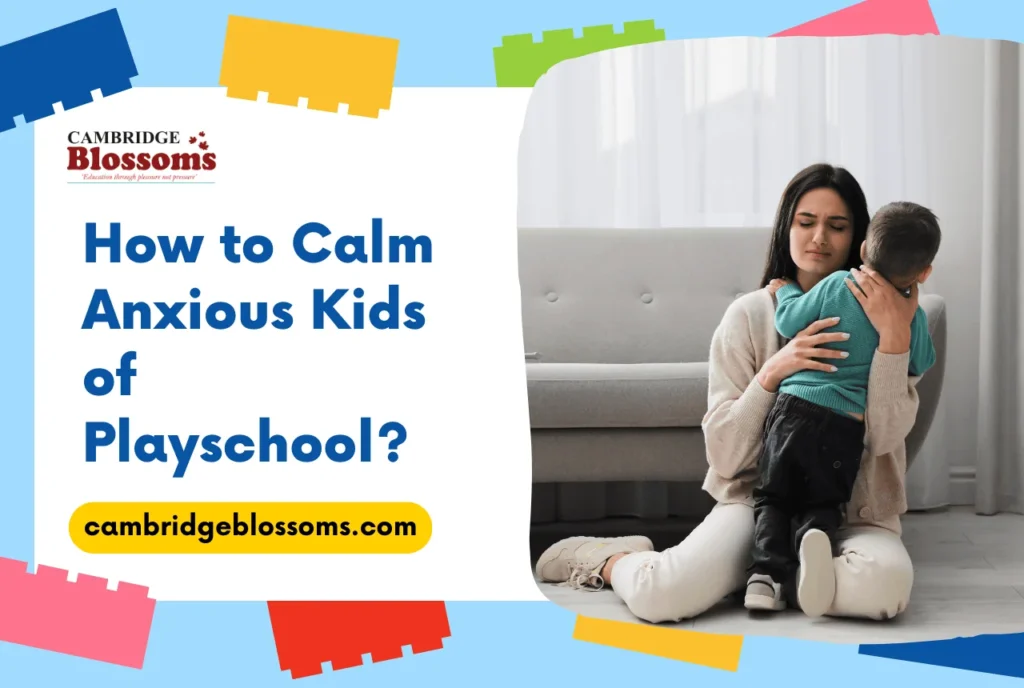Introduction
How to calm anxious kids of playschool? Starting playschool is a major milestone for young children, but it can also be an overwhelming experience. Many kids feel anxious due to the sudden separation from their parents, unfamiliar surroundings, and new social interactions. This anxiety is completely normal, but if left unaddressed, it can affect their confidence and willingness to participate in school activities.
In India, where family bonds are deeply rooted, separation anxiety can be even more pronounced. Parents must find ways to ease their child’s transition into playschool while ensuring they feel secure and supported. This blog explores nine effective ways to calm anxious playschool kids and help them adapt positively to their new environment.
Understanding Anxiety in Playschoolers
What Causes Anxiety in Playschool Kids?
Understanding the root cause of anxiety is essential to helping children cope effectively. Some common triggers include:
- Separation from Parents: The fear of being away from caregivers is a primary source of anxiety.
- New Environments: The unfamiliar sights, sounds, and people at playschool can be overwhelming.
- Fear of the Unknown: Uncertainty about what to expect can lead to distress.
Signs of Anxiety in Young Children
Anxiety in young children often manifests through:
- Clinginess and reluctance to separate from parents.
- Frequent tears and irritability before or during school.
- Physical symptoms such as stomach aches or headaches.
- Avoidance of school-related discussions or activities.
Recognizing these signs early allows parents and educators to provide the necessary support and reassurance.
9 Powerful Ways to Ease Their Fears
1. Talk to Your Child
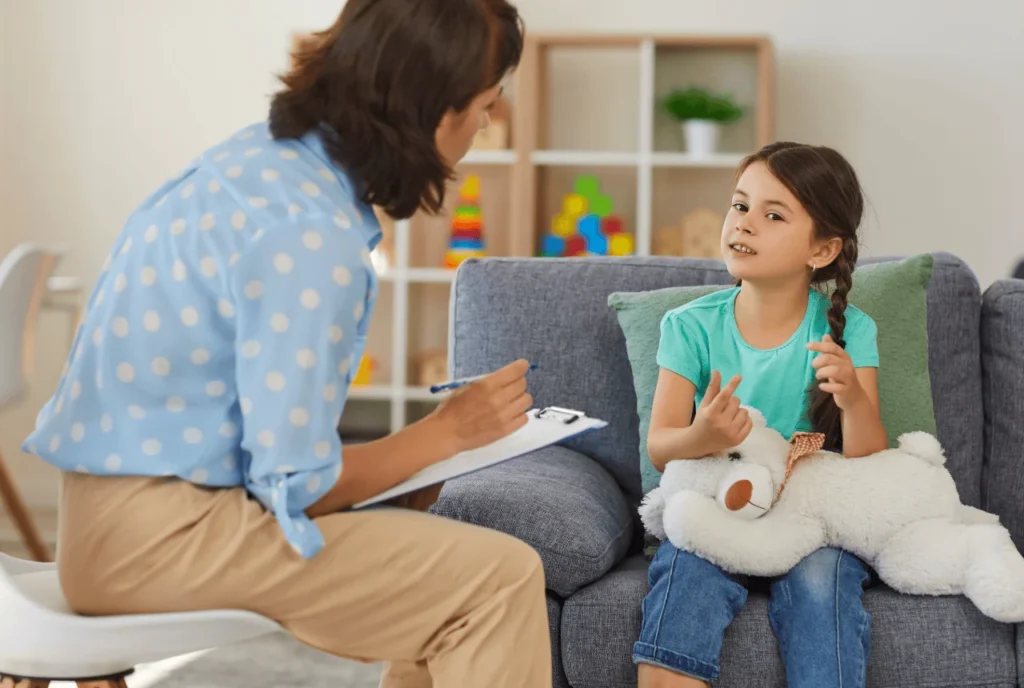
Communication is key to easing a child’s anxiety about playschool.
- Ask open-ended questions about their feelings and fears.
- Reassure them that feeling nervous is normal.
- Use storytelling to make playschool seem exciting.
Encouraging children to express their emotions makes them feel heard and supported.
2. Create a Gradual Transition
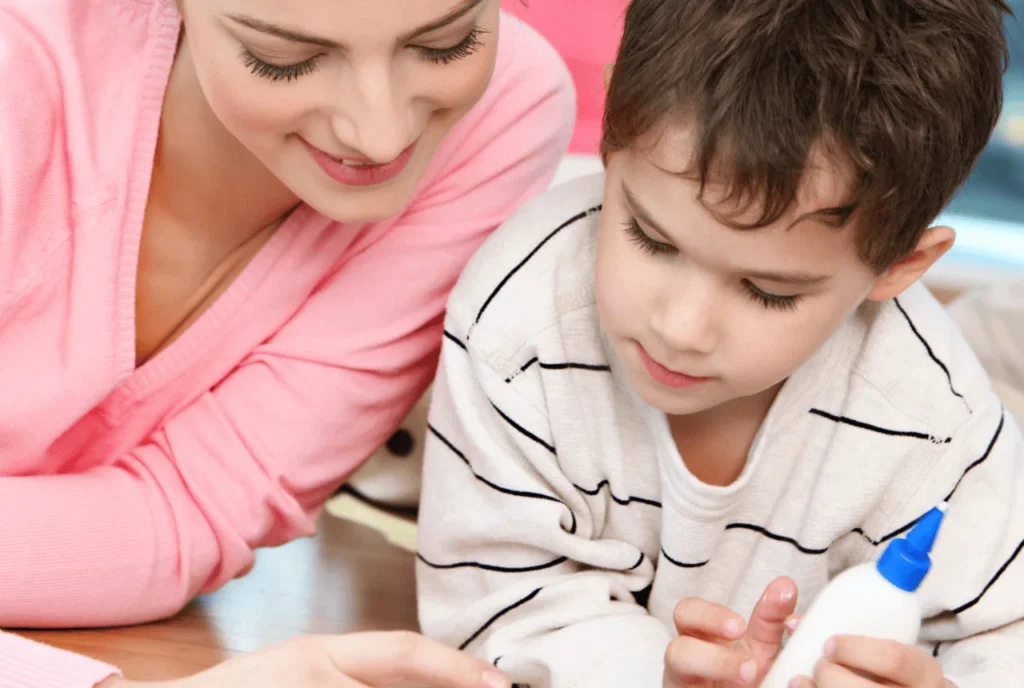
A sudden shift into playschool can be overwhelming. Instead:
- Start with short visits to the school before full-time enrollment.
- Introduce playdates with future classmates to build familiarity.
- Share stories and positive experiences about playschool.
Gradually easing children into the routine minimizes anxiety and builds confidence.
3. Establish a Consistent Routine

Predictability helps children feel safe and secure.
- Maintain a fixed schedule for waking up, meals, and bedtime.
- Develop a consistent morning routine to make school preparation stress-free.
- Plan enjoyable after-school activities to give them something to look forward to.
Routines help children feel in control and reduce uncertainty.
4. Use Play to Manage Fears
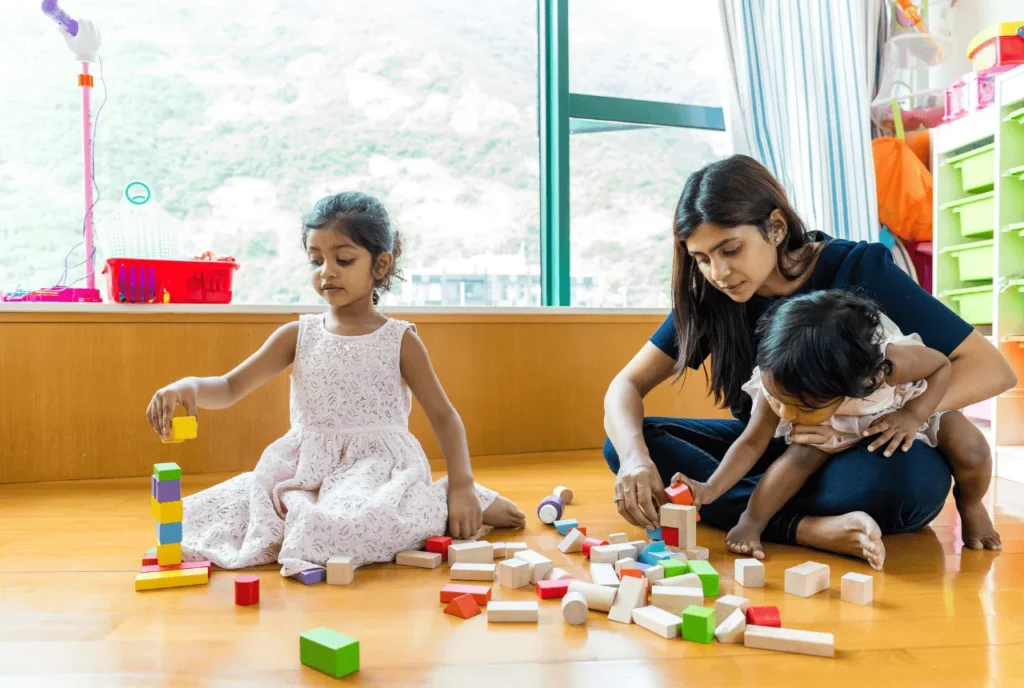
Play is a powerful tool to address anxiety.
- Role-play playschool scenarios using dolls or stuffed animals.
- Encourage them to act out their feelings through drawing or pretend play.
- Engage in school-related games to familiarize them with classroom activities.
Turning anxieties into play-based interactions makes school less intimidating.
5. Develop a Goodbye Routine
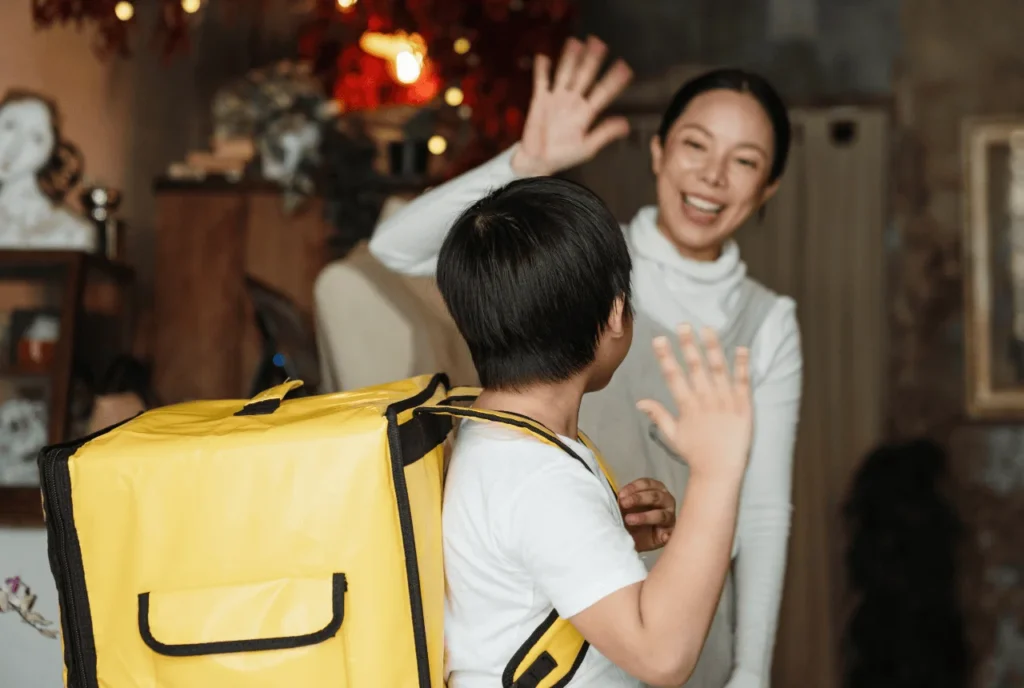
A special goodbye ritual provides children with reassurance.
- Keep goodbyes short and cheerful.
- Establish a consistent farewell phrase or gesture (e.g., “See you soon, my little star!”).
- Avoid sneaking away, as it can increase distress.
Consistency in goodbyes builds trust and helps children transition smoothly.
6. Provide a Comfort Object
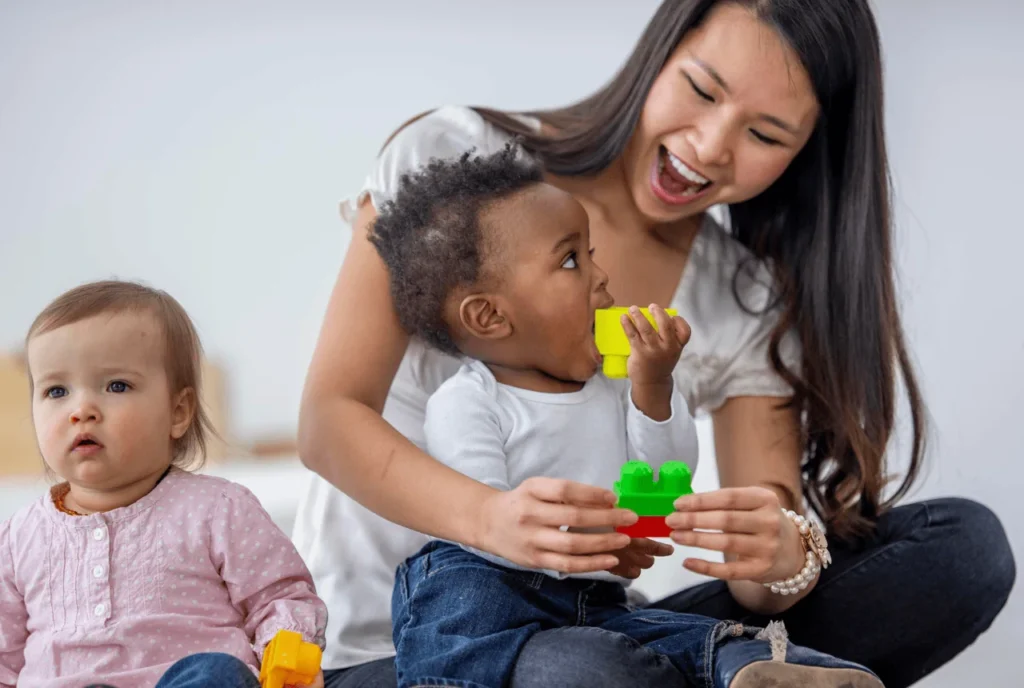
A small familiar object can offer emotional support.
- Allow children to bring a favorite stuffed animal, family photo, or blanket.
- Ensure the item is school-approved and easy to carry.
- Remind them that the object connects them to home.
Having a comfort object can provide a sense of security during the school day.
7. Practice Relaxation Techniques
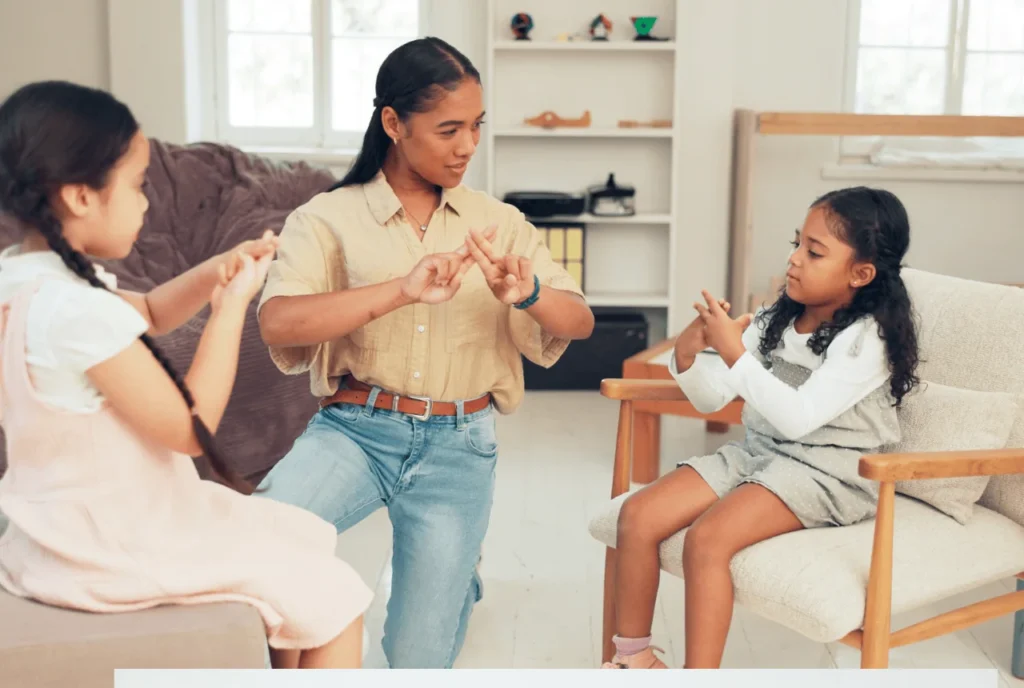
Teaching children simple relaxation methods helps them manage anxiety.
- Deep breathing exercises: Encourage them to take slow, deep breaths when nervous.
- Mindfulness activities: Teach them to focus on the present moment through sensory activities.
- Stress-relief tools: Create calming jars or encourage gentle stretching exercises.
Relaxation techniques empower children with self-soothing strategies.
8. Positive Reinforcement and Encouragement
Praise and encouragement boost confidence.
- Celebrate small milestones, such as attending a full day of school without tears.
- Offer verbal affirmations: “You are so brave!”
- Use a reward chart to recognize achievements.
Focusing on progress rather than setbacks helps children develop resilience.
9. Make a “Calm Down” Kit

A calm-down kit provides comfort during anxious moments.
- Include soft toys, coloring books, or fidget tools.
- Add personalized notes with encouraging messages.
- Teach children to use their kit when they feel overwhelmed.
A calm-down kit offers a practical way for children to regain composure.
The Role of Playschools in Easing Anxiety
Quality playschools play a crucial role in helping children overcome anxiety by creating a warm and nurturing environment.
What Schools Can Do:
- Provide a structured daily routine to build familiarity.
- Train teachers to recognize and address anxiety.
- Encourage parent-teacher collaboration to support children emotionally.
Cambridge Blossoms: A Leading Preschool in Guwahati, Assam
Cambridge Blossoms is known for its child-centric approach and emphasis on emotional well-being. Their supportive teachers and engaging curriculum help children feel comfortable and confident in their new learning environment.
Parents should choose a playschool that prioritizes emotional care and structured learning.
Conclusion
Playschool anxiety is a common but manageable challenge. By implementing these nine powerful strategies, parents and educators can help children navigate their fears and develop confidence in their new environment.
Key Takeaways:
- Talk openly about playschool experiences.
- Introduce gradual transitions to ease the adjustment.
- Maintain a structured routine for consistency.
- Use play and relaxation techniques to manage fears.
- Encourage independence and positive reinforcement.
With patience, understanding, and proactive support, playschool can be a joyful and enriching experience for every child.

